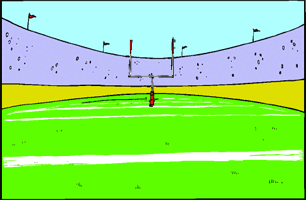Here we go again. The assumption being made above is that subjective experience isn't a physical process. However
@marduk has already made the logical point that anything that interacts with the physical world, must itself be physical in order to do so. The upshot is that the question above would better be formulated this way: What is the relationship between subjectivity and other physical phenomena?
This type of physicalism is not synonymous with what I for convenience sake, call classical materialism. It is closer to, but not identical to the kind of physicalism that associates itself with the laws of physics in nature, but not exactly like that either. I don't know if there is a designated philosophical name for it. But why does there need to be a preexisting one in the first place? New or more precise ways of thinking are clearly needed here.
Recently I've wondered if I should adopt naturalism, something Nagel has been predisposed toward. However it's a bit too fuzzy around the edges for my liking. If I were to get my way, I'd split physicalism and materialism into two distinctly separate camps so that they don't keep getting interpreted as synonymous, when in fact, there is no consensus among philosopher that they necessarily mean the same thing.


 . I would not jump to the conclusion that I am assuming monism in the same way you might be. I assume monism in the sense that all that exists is a product of nature ( or in the end supervenes on nature ). However that doesn't mean everything that is a product of nature is the same.
. I would not jump to the conclusion that I am assuming monism in the same way you might be. I assume monism in the sense that all that exists is a product of nature ( or in the end supervenes on nature ). However that doesn't mean everything that is a product of nature is the same.